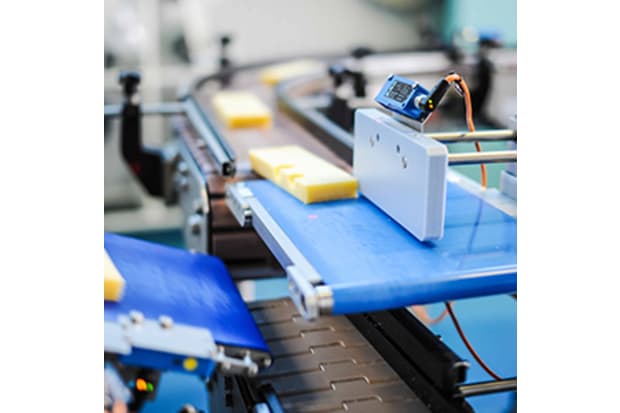- Published 17 Jan 2023
- Last Modified 13 Mar 2024
- 10 min
The Future of Automation – A Guide to What’s Next

This guide is part of our Industrial Automation hub where you can discover more about AI, automation and control.
What is Automation?
The term automation means the use or automatic control of a mechanical or repetitive process. Automation is commonly used in manufacturing and industrial applications.
Before the advent of modern technology, many of these tasks were done manually. However, the purpose of industrial automation is to save time and increase efficiency through the addition of machinery.
Nowadays, automation is a routine fixture across factories, communication networks and transportation. Just a few examples of routine contemporary automation include:
- Manufacturing processes
- The automatic adjustment of boilers and thermostats in response to environmental conditions
- Autopilot and similar transportation processes
- Controlling a multi-mode telephone network

Automation technology can be simple, or it can be complex, with multiple data inputs to respond to and evaluate. Although there are many types of automation technology, they all work on the same fundamental principle - comparing the measured value of a piece of data with its ideal value and then making the necessary adjustments. This fundamental feature is the control loop.
Automation equipment typically combines different technologies, including:
- Electrical systems
- Electronics
- Pneumatic components
- Hydraulic systems
- Mechanical devices
Regardless of the technology, all automatic systems involve the coordination of sensors providing data inputs with actuators delivering data outputs. These outputs prompt necessary adjustments to the system and ensure that desired events occur.
Types of Automation
Modern automation technology falls into three broad categories. These are:
Flexible Automation
The term flexible automation is applied to production systems that are not tied to a single result, but which can instead be quickly reconfigured to create different components or products, or otherwise to handle different production cycles for the same part. This flexibility extends to the quantities produced.
Flexible automation normally refers to machining - the use of computer-controlled tools to manufacture components or items - and to assembly systems, in which components are slotted together.
Fixed Automation
By contrast, fixed automation lacks flexibility because it is limited by the particular combination of equipment in place. If a change in operations is required, it is necessary to remove this hardware (moving parts, gears, cabling and all) and replace it with an alternative, specially programmed system.
Typically, fixed automation requires a significant outlay and it is best suited for products produced in large quantities such as on production and assembly lines.
Programmable Automation
Programmable automation is an approach focused on the production of products or components in batches. Such batches can vary greatly in number, but overall quantities are typically lower than in fixed automation. Once a particular batch has been completed, the operator must reprogram the equipment ready for the next batch. This requires time, but the automation hardware is specifically designed to allow such change.
Computer-controlled machining and 3D printing tools - CNC (computer numerical control) devices - are both widely used examples of programmable automation.
Automation Tools and Technology
Perhaps the most significant recent advancement in automation has been the development of computer numerical control (CNC) technology. Computer-controlled systems allow precision and complexity on a level not previously possible in automatic systems.
Examples of CNC technology include:
- Computer-aided design (CAD) systems
- Computer-aided manufacturing (CAM) systems
- Programmable logic controllers (PLCs)
- Proportional-integral-derivative (PID) systems
PLCs are specialised computer systems administered by human operators, coordinating the flow of data between sensors and actuators within the system. They are designed to be physically rugged to resist the dust and vibration in factories and similar industrial settings. They range in size from modular to rack-mounted.
PIDs are designed to evaluate continual feedback from industrial machinery - in other words, they are control loop devices.
PLCs and PIDs are just two examples of a whole range of technology that has enabled the rapid advancement of industrial automation. Other examples include:
- Artificial Neural Networks - this is a form of artificial intelligence designed to learn from and respond appropriately to environmental input. Amongst many other uses, they are used in CNC systems
- Distributed Control Systems - these combine multiple autonomous devices across a single production process, each operating its own control loops
- Supervisory Control and Data Acquisition - SCADA systems allow close supervision of complex networks consisting of PLCs and similar equipment
What is the Future of Automation?

Automation technology has undergone rapid change in recent decades and this only looks set to continue.
Research on robotics and artificial intelligence advances rapidly with each passing year and such devices are already capable of a startling number of autonomous actions.
Additionally, industrial automation is also becoming more accessible as the cost of automation equipment falls. By 2025, industrial robots are expected to cost 65% less than they did just five years ago.
Thanks to these developments, the impact of automation is expected to extend well beyond the industrial settings in which it has become a familiar fixture and eventually to feature in many other aspects of daily life.
The Impact of Future Automation Technologies on Different Industries
As automation technology advances, it will inevitably have significant effects on society and different industries, as explored below.
Manufacturing
Manufacturing has been the focus of automation technology for decades, but new changes are constantly being implemented. Automation in manufacturing is all about efficiency, and it is expected that manual tasks will reduce as technology advances and processes become smoother, faster, and more effective.
Engineering
Beneath the girders and pistons, engineering is fundamentally about mathematics. The more accurate and well-honed a system or component is, the safer and more effective it will be. Automation and computerisation have helped to boost precision and safety, minimise errors and increase the efficiency of all fields within engineering.
Robots are perhaps the ultimate feat of automation - an innovative fusion of information technology with the more traditional disciplines of electrical and mechanical engineering.
These benefits, along with increasing affordability of powerful computing equipment, have driven a considerable, ongoing push to automate ever more engineering tasks. Just a few examples include drilling, grinding, welding and milling - primarily via CNC technology - sensors, and robotics.
Construction
Construction is yet another industry expected to undergo a significant transformation as automation technology grows ever more sophisticated. For example, the growing use of modular construction, in which buildings are constructed from units assembled off-site, has already begun to allow in-factory automation to rise in popularity in this industry.
Automotive
The automotive industry has already seen major changes thanks to automation, with industrial robots carrying out many previously manual production line tasks such as welding, assembly, and chassis painting. Robotic process automation (RPA) has brought a significant increase in reliability, accuracy and productivity to the automotive industry.
Modern cars have evolved considerably; sophisticated digital sensors and integrated computing devices are now standard, managing everything from automatically adjusting the chassis to compensate for uneven road surfaces to alerting the driver to free parking spaces.
Naturally, all this technology generates large quantities of data, and that wealth of data is expected to acquire an increasing commercial value to vehicle manufacturers. This is likely to only increase further over time.
In addition, sophisticated AI-driven analyses will allow driving events to be analysed in real-time, in order to generate reliable predictions and safe responses. This is the automation technology that will propel the self-driving car from its current experimental status firmly into the mainstream over the coming decades.
Retail
Like manufacturing, retail is an industry on the front line of automation. Significant changes have already been introduced in the form of self-checkouts, for example, but it is expected that the relationship between automation and the retail industry will continue to evolve over the coming years. This could lead to new opportunities in the face of increased automation, with staff reskilling and new positions opening up.
Benefits of New Automation Technology

So, why is automation important? What benefits and advantages does it bring?
New automation technology is exciting and innovative, allowing us to extend our capabilities and work faster, smarter, and more efficiently.
Modern automation technology delivers solid benefits - greater efficiency, lower costs, better productivity - but perhaps none is more compelling than safety.
To just take one possible example, traditional acetylene welding is a hazardous job, generating extremely bright flames and dangerous gases, but the latest technology allows welding to be fully automated.
The shape and surface details of the target metals are scanned and processed in real-time and the welding beam automatically adjusts accordingly. The result is increased safety and fewer injuries or accidents.
FAQs
What are the Objectives of Automation?
The purpose of automation is to remove the need for significant human involvement in dangerous, repetitive or difficult tasks. Workers administer and control automatic systems but do not carry out their core functions while the technology is in operation.
How Will Automation Impact Jobs?
In the field of employment, automation is seen by many as something of a double-edged sword. The introduction of automation inevitably leads to job losses as old approaches are phased out. However, it also creates jobs – administering production lines and programming systems and robotics, for example.
New specialities arise as society shifts - historical trends suggest that automation has always created more jobs than it has eliminated. Some of the employment opportunities set to open up over the coming decades will be so different from current jobs that we might struggle to even imagine them today.
What is the Social Impact of Automation?
Automation is initially a disruptive technology, and this has been the case since the introduction of textile manufacturing machinery prompted protests in the early 19th century. Some industries are hit especially hard when new automation techniques are introduced and rapidly shrink to a fraction of their former size.
For instance, at the beginning of the 20th century, there were approximately 10 million farmers in the United States. A century later, there are only a million. However, thanks to modern automation, today’s farmers are many times more productive than their historical counterparts.
What is the Value of Automation?
The benefits of automation are significant and include:
- Lower labour costs
- Greater safety for employees
- Rest times and fail-safes for pilots and drivers
- A major boost in speed
- More precise operations and more accurate work
- Greater manufacturing quality
- High production volumes and greater profits
Discover How Artificial Intelligence Could Impact Your Life
Future Home Tech
Modern technology has advanced dramatically, but there is still much to come. See how future tech in homes will change in your lifetime!
Jobs of the Future
Have you ever wondered what types of jobs we will need in the future? This graphic reveals some futuristic positions that we predict will exist in years to come.
Future of Transport
Driverless vehicles, superfast flights, hyperloop trains - see what travelling in the future could look like with this interactive guide.
Futuristic Tech
Explore The Internet of Things (IoT): a world of connected devices, smart factories, cities and homes all powered by the latest technology.
Related links
- The Future of Industrial Robotics
- Guide to the Future of UK Renewable Energy
- Industrial Automation
- The future of industry 4.0
- Industry 4.0 and the Future of Maintenance
- Industrial Circular Connectors
- The Future Of Travel - How Will You Be Travelling?
- Secure your free trade fair ticket today and visit us at the SPS



